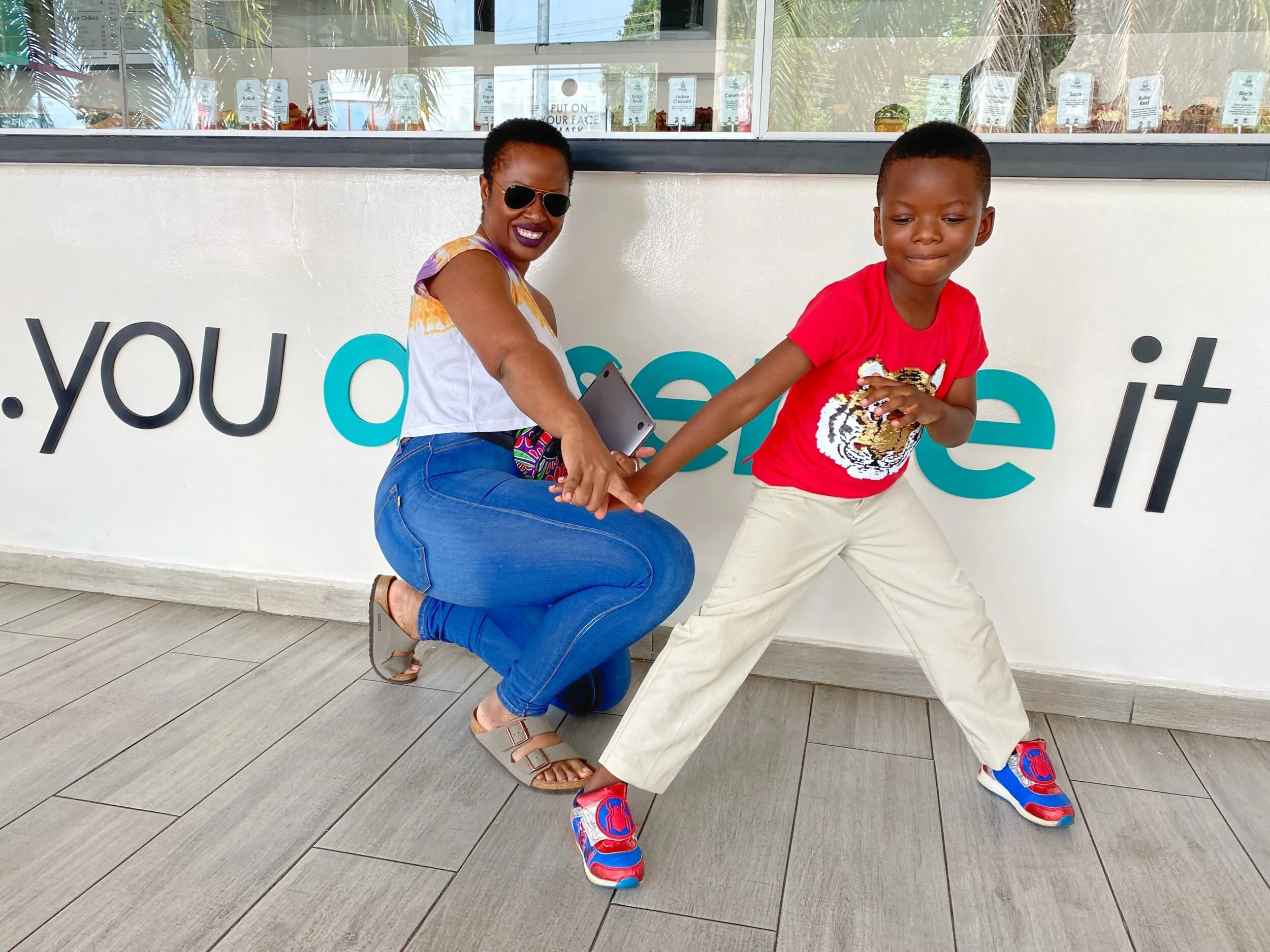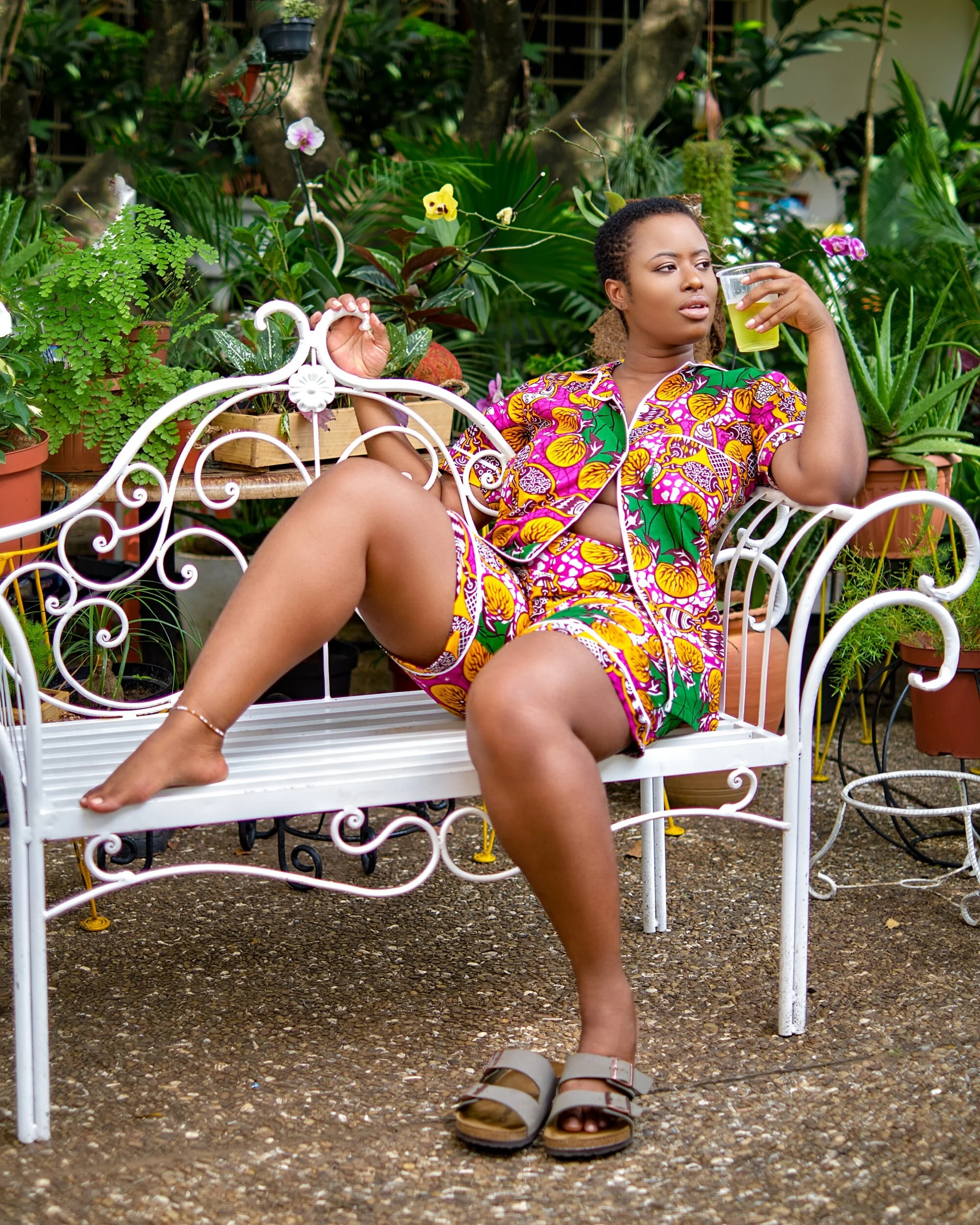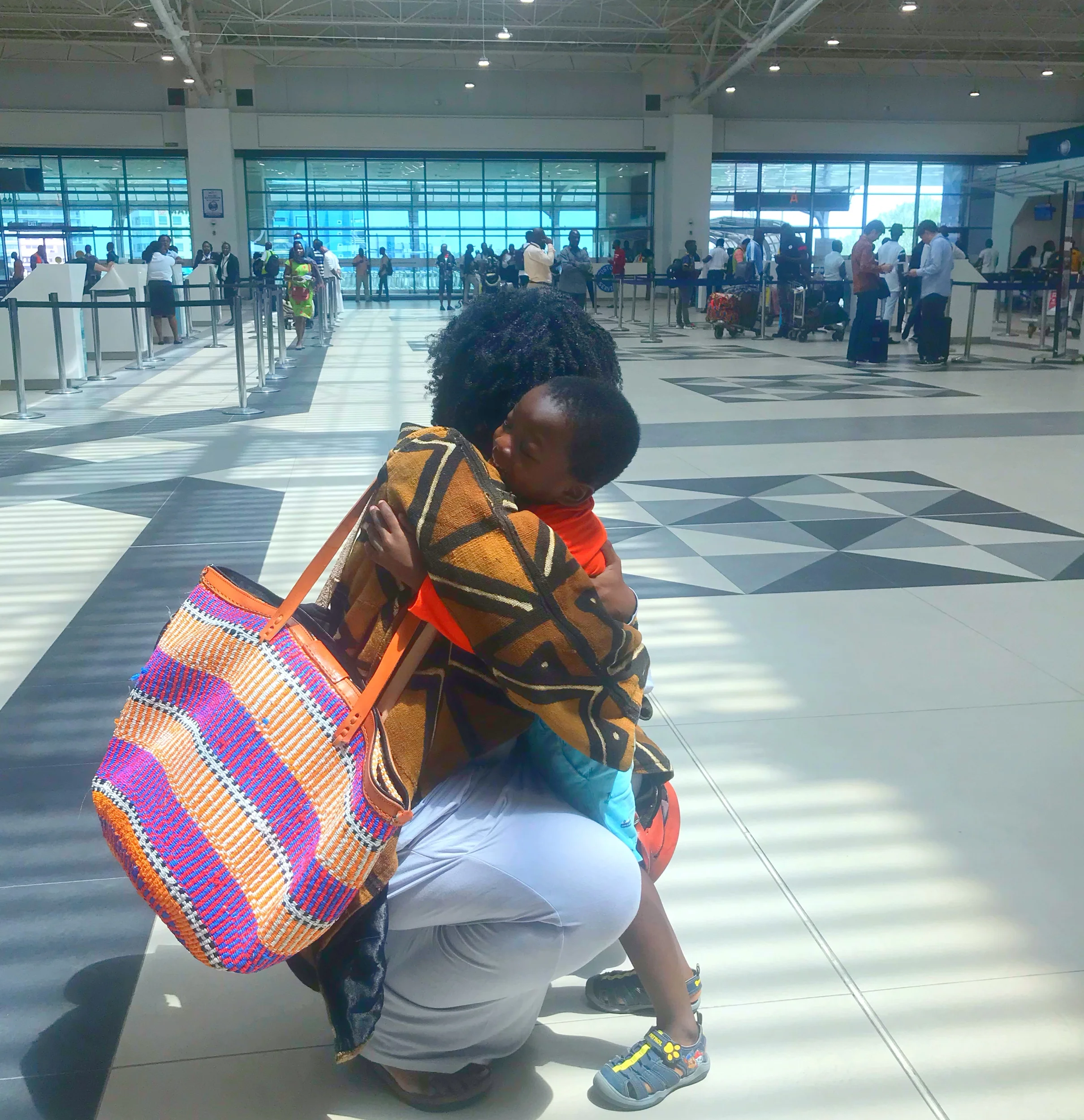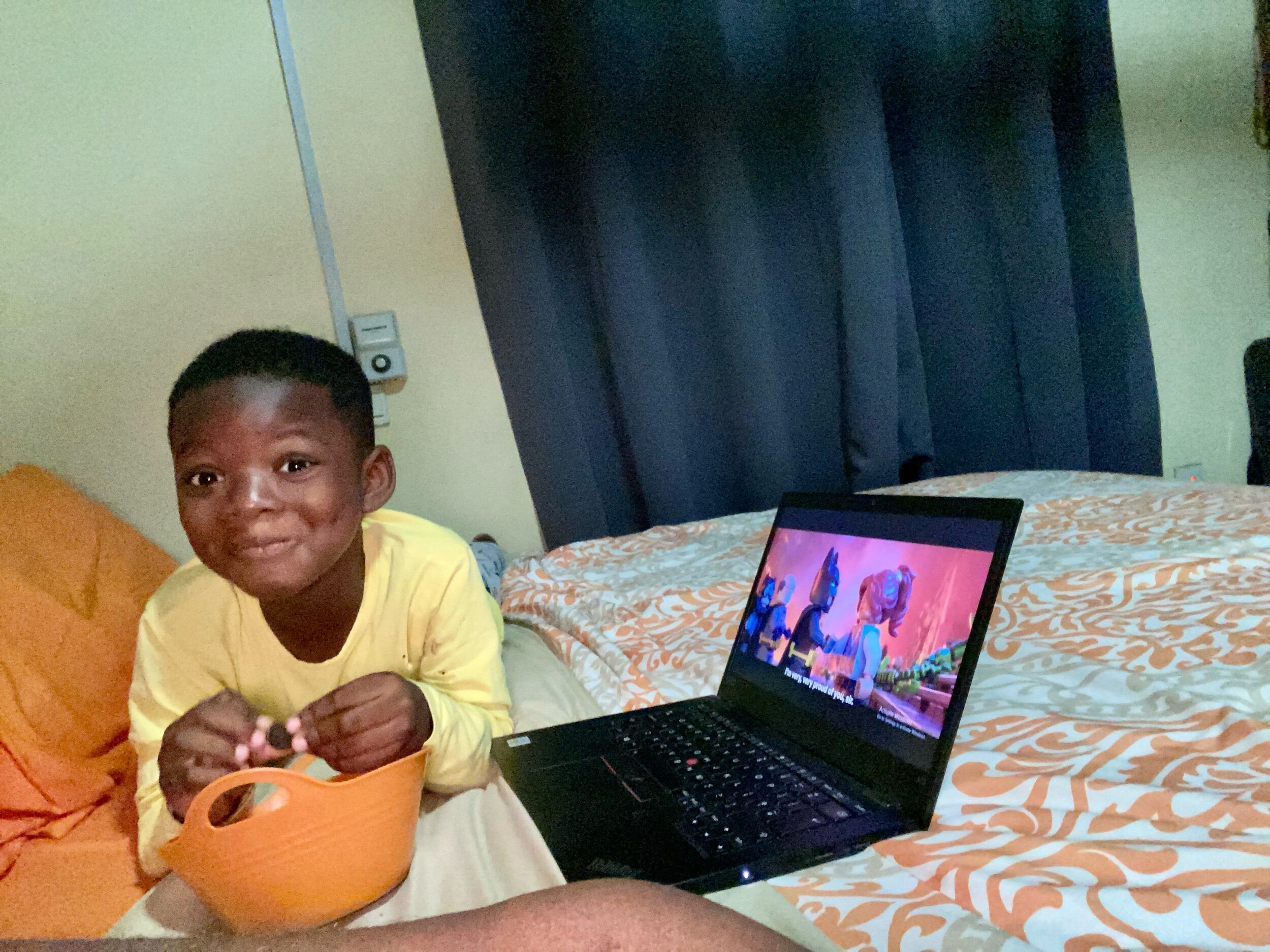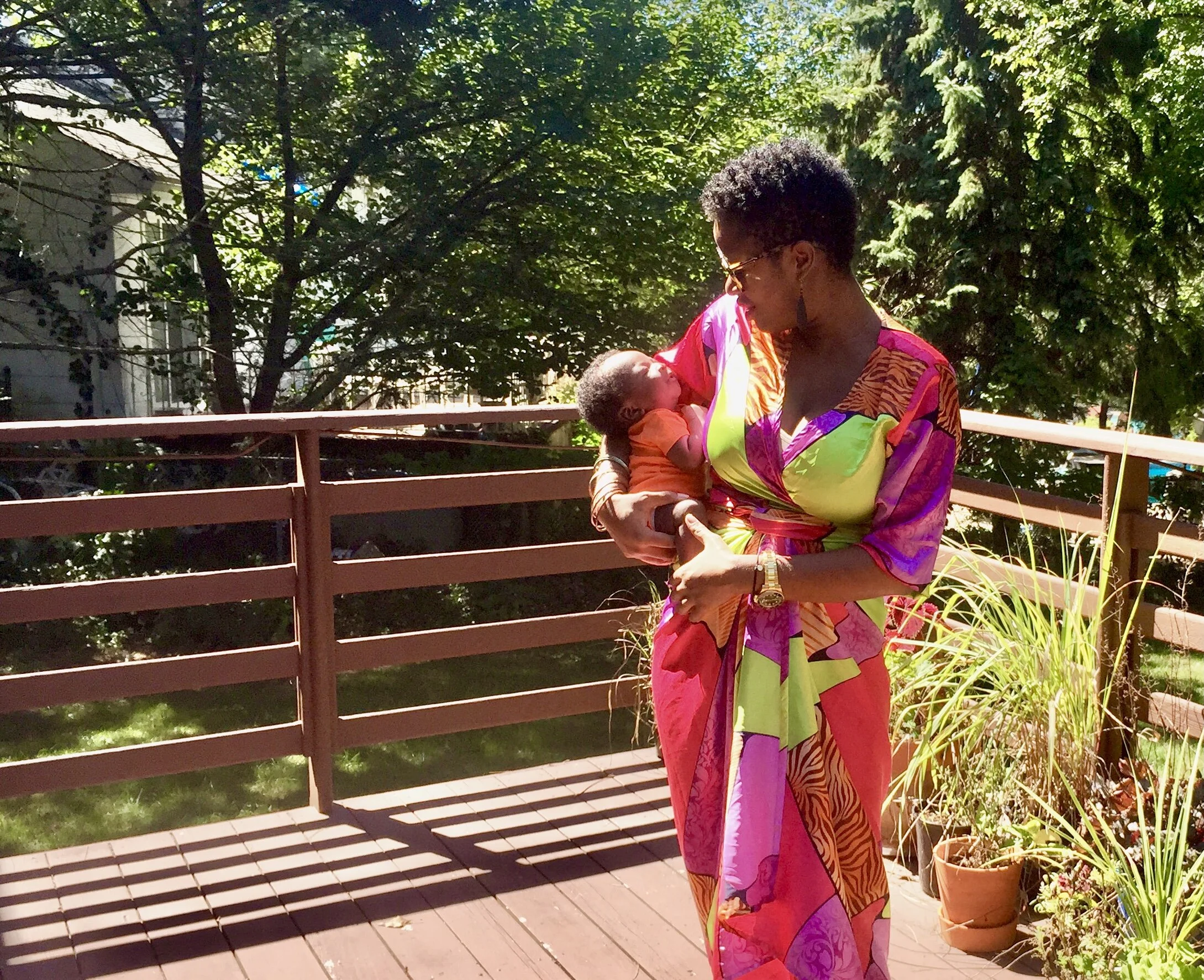Radical African Parenting: Good Home Training Is It Possible Without Canes, Slaps, and Beatings?
Parenting without fear
Yesterday I asked my five-year-old to go to the kitchen and fetch me a glass of water.
"Why?" asks five-year-old African boy.
"I'm thirsty," responds African mama.
"I am tired," says he.
"I am also tired, and I would like for you to get me water as a favor," says I.
"I'm not going to do it because you are closer," repeats African boy to the face of his African mom.
Reader, I want to state at this point that that remark was untrue. We were equidistant from the kitchen.
When he says no, I shake my head. I don't ask again because I can't come up with anything else to say to further my water quest. Then a minute later, he gets up. He goes to the kitchen. African boy returns with water in my favorite mug, and he brings it with a straw.
I smile, and I thank him. I self congratulate in my head. I had my way. Just as I finished drinking my cup of water however, the African boy says this: "Mama, can you please go get me water? Also, bring me a straw."
I shake my head again at the realization that he had duped me. I told him I was exhausted. His nanny walks by. I ask her to get him some water, but the African boy rejects my attempt to pass on the task to another. He says that it is I and not the nanny who must fetch him water to drink.
"Please, Mama, you are the best water-getter ever!"
I roll my eyes as I get up to go to the kitchen to fetch the boy water with a straw.
As I returned with his water, I reflected on my childhood in Freetown. At no point during my childhood or adolescent years would I have asked "why" in response to a request from an adult to fetch something or perform a task. If I wanted to protest, it would be in my inner voice only.
"Anti Isatu ol ten i sen posin" [inside deep in my throat]
We big posin s3n yu—yu go.
I wasn't raised to ask adults questions—big people are always right. A good pikin must consent to the requests of adults until you become one. Whatever an adult asked me, I did because there was a price to pay for saying no—dem go bit yu.
Beating is good home training
“Corporal punishment (CP) is the use of physical force with the intention of causing a child to experience pain but not injury for the purpose of correction or control of the child’s behavior.”
When I was in college, I defended beatings to my American friends. I remember getting into heated debates at Haverford, where I would argue that beating was for the child’s own good. In African culture, I argued, obedience was a sign of respect for elders. Children who didn't do as adults asked deserved punishment. American kids, in my view, were wayward and disrespectful. If you spoke to me long enough about beating children, I would eventually say that all the drug addiction and crime in America were because they didn't hit the children well enough to discipline them. At the time, I believed corporal punishment was a sign of good home training. If you didn't get beat at home, you wouldn't know right from wrong.
It wasn't until years later that I would be forced to challenge my own beliefs. I started questioning beatings after I moved to Freetown in 2007. From my compound in Banana Wata, I could hear the wailing and screams of children. It was almost a constant refrain; someone was always beating their child. For our closer neighbors, I could sometimes hear the sound of the whip hitting the flesh.
Even though I had defended beatings just a couple of years earlier, I couldn’t bear to witness it. Hearing a child getting beat makes me uncomfortable in the same way seeing a man beat a woman does. While I would have no problem calling the police or interfering when a man hits a woman when parents abuse their children, I never feel I have the right to interfere unless it's a close relation.
If you’re doing it for the child’s own good is it still abuse? YES!
“Corporal punishment affects the same brain areas that are affected by severe physical and sexual abuse. The magnitude was lower, but to see that spanking impacts a child’s brain development in the same way was a big surprise.”
When I became pregnant six years ago, it was my moment of reckoning about corporal punishment. Would I do it to my child as was done to me? I turned to Google--where every 21st Century African Woman goes to make big decisions.
I read research on corporal punishment as a form of discipline for children. Everything I read said beating children was harmful to childhood development. One study even said that beating affects the little grey cells (Mon Dieu!). It was a straightforward and easy decision to make, no beatings whatsoever for my African boy. I have never hit or beaten him. I have never pinched him, twisted his ear, or yanked him. I have never used my hands to inflict physical pain on him as a form of discipline.
There have been countless times when I have wanted to slap some correction into him but I take deep breaths and walk away (God knows he be trying me. I will not list his transgressions here because he cannot defend himself, but that boy is a boy).
Radical African Parenting (That’s right R-A-P)
To manage my relationship with the boy, I use strategic communications tactics (I'm serious). My parenting goal is to get the African boy to understand problems and take action to solve them. I work to earn his trust so that he allows me to guide him. It is parenting without force or fear. I have to nurture him with information and education throughout the day, so he thinks he is discovering things on his own although under my influence.
At all times, I have to tap into my emotional intelligence to negotiate, explain, persuade, create boundaries, teach lessons, encourage, and yes, discipline too.
I communicate to help him understand how to make decisions. We are on the same side at all times, not adversarial, even when he is rolling on the ground, refusing to brush his teeth, or drops his grandma's phone on the floor in anger.
Every day I engage ALL of my senses, wits, intellectual capacity, creativity, and imagination (I’m tired even typing it). No other human being has ever challenged me the way the African boy yagba's me.
Every single thing in our house is a debate. Nothing is a foregone conclusion, and even if I come out victorious in one instance, I may fail on the next.
Monday to Wednesday no palava for bath time but Thursday i debul grap i no wan was egen. He then runs around the house like a cockroach.
"Go and take your bath," I say.
"Neverrrrr!!!! I'm never-ever-ever-ever bathing again," he yells back.
Am I supposed to beat him for not taking his bath at the time I want? Or run after him for that matter? No ma'am. I excuse myself from it all and retire to my room because I can't come and kill myself. I pick my battles sha.
When I was a child, I was taught that obedience was the mark of distinction, while disobedience was the devil's work. I don't think that the boy owes me obedience. It is nice when he does Md it makes every day more manageable, but he doesn't owe me anything.
Instead, what I teach him daily is that actions have consequences, both good and bad. I give him choices so he can make decisions that benefit him and the people around him. When he makes the wrong decision like waste time, then the things he wants like screen time don't happen (i fo bin don memba dat bifo i bigin act lek i cras).
There are many instances where hitting him would immediately fix the dispute or conflict, but I'm always thinking long term. It's not about the one moment but the distorted messaging: if I do love him and he is safe with me, how can I also physically cause him pain? And if I tell him not to hit others, how come I hit him?
I don't want any child, least of all my own, to fear me. I feared many adults as a child and I did whatever they asked. I had an aunt come live at my grandma's when I was a kid. She beat me all the time, more than my parents and everyone else combined. She treated me like dirt in my own grandparents' home. Often, it was her and me when she would punish me, so it's not like anyone saw. And since all adults were always right, I didn't ever dare to speak up to my grandma or my mom about her abuse (I didn’t know it was abuse, though I knew deep down in my soul that the way she treated me wasn’t because of things I had done). She is in the US now, and I can tell you that I have no love for that woman, and every time there is family news about her, and I hear she has hard times, I have zero empathy (I be like we must not interfere with what God is trying to do in her life).
I don't want my child to be afraid of me. Instead, I work every day to earn his respect by being an example and owning up to my shortcomings.
Like recently, when he said "sheeeeeet" and I was like, wait, why are you saying that don't say that.
"Is it like saying shit," he says knowingly.
"Yes, it is, but I don't want you to say that. It's not a nice word."
"Well, you shouldn't say it either mama, cause I heard you say it the other time in the car," says he.
"You're right. I shouldn't have said that. I won't repeat it. It's not a nice word."
He didn't say it after that. And sheeeet (kikiki) I ain't gonna say it either because my worst moments are when he catches me being the ugly parts of myself and he copies it. When I see him doing me, I'm like, dang that doesn't look good at all. I adjust because he is always watching and I have to set the standard.
I know my childhood experience with beating is mild compared to most Sierra Leoneans, mainly because I didn't complete any part of my education in Sierra Leone. I left home at the age of 12 and no one has ever struck me with their hand or a whip since.
For most Sierra Leoneans’ childhood means beatings from parents, teachers, wicked older siblings, and extended family. Each one using violence, fear, and intimidation to coerce, control, and manipulate. And if you're a woman beating continues into adulthood too (1 out of every 3 adult women from Sierra Leone has experienced intimate partner abuse from their boyfriend or husband). Aalso, our Abrahamic faiths give their blessings for corporal punishment.
Dear Reader, I would like to invite you to consider the possibility that there may be another way to parent where we treat our children as our equals deserving of dignity and respect no matter how young. Radical African Parenting says it is possible to give “good home training” to your children without corporal punishment. Radical African Parenting acknowledges every child’s right to have physical, emotional and psychological safety especially at home.
Forget the notion that "pikin no know natin” or “pikin no go understand" instead, guide children to the knowledge they need to understand. That process is a long and winding road but it is built on patience, love, forgiveness, respect, and empathy.
We have to give ourselves permission to unlearn what it means to be African parents with African children. It doesn't make you self-hating if you acknowledge that your own parents were wrong to beat you and that corporal punishment does more harm than good. Be a Radical African Parent and leave that behind.
Mi las wod
Even though I have never beaten my child or speak violent and demeaning words to him, I can still guide him to do the right thing. He doesn't always do as I say in the minute, but it gets done.
I am self-congratulatory that I have a five-year-old who has enough autonomy to ask why he should fetch me water. Yes, it sucks when I'm thirsty and tired (and once imagined that my children would be my fetch and carry) for a child to resist my wishes, but pikin na human being.
If you're reading this, and you are Sierra Leonean or of African descent consider this an invitation to reflect on your childhood. Did the beatings help you make better decisions? Did they help you become a better human?
When my son does unpleasant things, I have two options. We have a points system where to get new toys (which he asks regularly) he must earn 100 points. He can earn points for sharing, learning, collaborating, and a host of other things, but he can also lose points. So when he does things like hitting he loses points. Or when he does the truly terrible (which somehow always happens at night), I send them straight to bed, no bedtime story, no nothing, just straight to bed. And that's his punishment. I know I am on the right track because I never feel bad about the way I treat him and he continues to be a full human being.
Each time I discipline him, I do not cause him physical pain or humiliate him. I discipline him with respect for his rights because I see him as my equal—Radical African Parent up!
